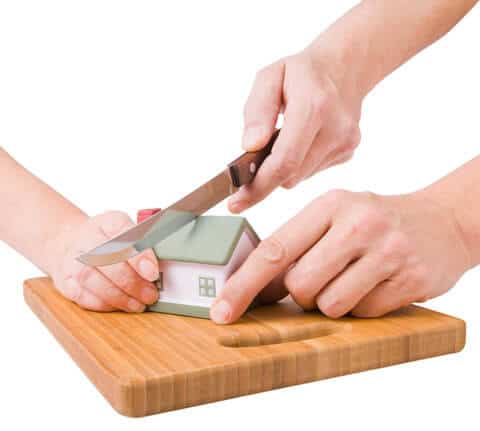How Much Will I / My Spouse Get In My Divorce?

What is the Law in New York Regarding Property Distribution?
New York is an equitable distribution jurisdiction, which means that all marital property will be divided equitably among you and your soon to be ex-spouse. Keep in mind – equitable distribution does not automatically entitle you to an equal distribution of property. Rather, , to ensure distribution is fair and just, each distribution is made on a case-by-case basis depending on the specific individual circumstances involved.
What is Marital Property?
Marital property includes all property earned by either you or your partner during the marriage. Naturally, separate property includes that which was acquired before the marriage. Separate property also includes any gifts or inheritances received by one spouse and personal injury or other similar settlements, regardless of whether or not they were acquired during the marriage. Furthermore, you and your partner are free to make any agreement regarding separate and marital property, so if you did enter into a pre-nuptial agreement, that agreement will govern what constitutes marital property and what constitutes separate property. A point that may serve to surprise you is the fact that New York considers business degrees and professional licenses obtained during the marriage as marital property. Therefore, if you received one of these degrees during your marital relationship, your partner is entitled to share in the increase in earnings due to the degree, even if he or she was unemployed during the marriage.
What Other Factors Are Taken Into Consideration?
- Income. One factor taken into consideration is the income of you and your partner: both during the marriage and at the time the action for divorce is commenced. Therefore, it is important to keep close account of your finances and to inform your divorce attorney of any changes in income from the time of the marriage to the commencement of the proceeding.
- Health. Additionally, the health and age of both you and your soon-to-be ex-spouse are important. If you are facing the possibility of losing health insurance due to the divorce, it is important to inform your divorce attorney of this fact, especially if you are suffering from an illness. The purpose of equitable distribution is to ensure that the distribution of the marital assets is fair and just, therefore, if you are ill and set to lose insurance, you may be awarded a greater share of the assets than your healthy spouse.
- Pension. You may also face the loss of pension benefits after your divorce. If your spouse is the holder of a pension plan, a divorce serves as an automatic revocation of your rights under this plan (so long as this is not inconsistent with standing federal law, so be sure to check with your divorce attorney).
- Waste of Assets. Further, any extreme disregard for finances during the marriage (such as excessive gambling, etc.) will also be taken into consideration in making the equal distribution determination.
- Fault or Misconduct. Important to note is the fact that any fault or misconduct on behalf of you or your partner is not taken into consideration unless it is egregious (generally, egregious is considered an attempted homicide of a spouse). Therefore, if either of you feel the other is “at fault” for the dissolution of your marriage, it is helpful to be aware that that is not used to determine what is fair and equitable.
What About the Marital Home?
Aside from child custody issues, what to do with the marital home is often one of the most pressing issues that arise during a divorce. Rather than have the court decide who retains possession, or whether your home will be sold to a stranger, it may be beneficial if you and your partner take the time to decide this issue between yourselves. If you and your partner cannot reach an agreement, the court will mostly consider which spouse has custody of the children.
Need More Help With Your Property Division In Your Long Island Divorce?
The compassionate divorce lawyers at the law firm of Hornberger Verbitsky, P.C. have helped hundreds of Long Island couples like you divide their property fairly and equitably. We represented and protect your issues to ensure you receive what’s fair and ensure you are not taken advantage of by your ex-spouse. If you have more questions about how to divide your property with your former spouse, give us a call at 631-923-1910 for a confidential and complimentary consultation in our comfortable and convenient offices in Melville, right off Route 110, just south of the LIE. Don’t let your spouse get more than he or she is entitled to. Call us today or fill out the short form on this page and we’ll get right back to you.
See this page for Your Guide to Preparing for a Contested Divorce.






